Times Ayn Rand's philosophy was criticized recently and my take on it in less than 250 words!
Quora
Benjamin Golub,Harvard Dept. of Economics; Ph.D. in economics, Stanford.
August 21, 2016
Rand argued in The Virtue of Selfishness, her nonfiction work on moral philosophy, that (i) one's own life is logically the ultimate value because it makes all other values possible; that (ii) it is therefore irrational for a valuing being not to defend and further this life above all other values; and that (iii) this entails strong conclusions about the rightness -- actually, the moral necessity -- of living selfishly. More broadly, a central theme in her work is the proposition that a particular conception of the good life is itself a moral value, and that from this value, certain libertarian moral and political conclusions follow.
https://www.quora.com/What-was-Ayn-Rand-wrong-about
PBS Newshour
Denise Cummins, research psychologist, an author, and a fellow of the Association for Psychological Science.
March 17, 2016
What caught my eye in this article is the few lines that has been picked up from Rand's “The Virtue of Selfishness”
The moral purpose of a man’s life is the achievement of his own happiness. This does not mean that he is indifferent to all men, that human life is of no value to him and that he has no reason to help others in an emergency. But it does mean that he does not subordinate his life to the welfare of others, that he does not sacrifice himself to their needs, that the relief of their suffering is not his primary concern, that any help he gives is an exception, not a rule, an act of generosity, not of moral duty, that it is marginal and incidental — as disasters are marginal and incidental in the course of human existence — and that values, not disasters, are the goal, the first concern and the motive power of his life
and then Dr. Cummins summarizes in that whole portion in a line "In other words, me before you — first and always."
http://www.pbs.org/newshour/making-sense/column-what-ayn-rand-got-wrong-about-human-nature/
Psychology Today
Denise Cummins, research psychologist, an author, and a fellow of the Association for Psychological Science.
March 17, 2016
It claims that Rand's understanding was based on deficient understanding of human psychology.
The below quoted is from Rand's The Return of the Primitive.
At birth, a child’s mind is tabula rasa; he has the potential of awareness—the mechanism of a human consciousness—but no content. Speaking metaphorically, he has a camera with an extremely sensitive, unexposed film (his conscious mind), and an extremely complex computer waiting to be programmed (his subconscious). Both are blank. He knows nothing of the external world. He faces an immense chaos which he must learn to perceive by means of the complex mechanism which he must learn to operate.
Dr. Cummins says that the research hence has amply dis-confirmed this view and has uncovered a wealth of domain-specific knowledge that emerges early in infancy, before infants have had sufficient time to induce this knowledge through experience.
She also picks up a claim from Rand's Capitalism: The Unknown Ideal;
Man is the only living species that can transmit and expand his store of knowledge from generation to generation; but such transmission requires a process of thought on the part of the individual recipients.
Dr. Cummins pulls up the cases of the chimpanzees of Gombe (but not elsewhere) teach their young to fish for termites, those of the Taï National Park in Côte d'Ivoire teach them the skill of nut cracking, and bottle nose dolphins in Australia's Shark Bay hold sponges at the tip of their mouths when foraging to protect their beaks. She further says 'All told, ample scientific evidence indicates that the reasoning capacities of nonhuman animals differ from those of humans more in degree rather than in kind.'
Now this psychologist takes up Rand's thought on Altruism
The irreducible primary of altruism, the basic absolute, is self-sacrifice— which means: self-immolation, self-abnegation, self-denial, self-destruction—which means: the self as a standard of evil, the selfless as the standard of the good.
Altruism means incurring a cost on oneself to benefit another individual. Cooperation involves altruism because when cooperating, one typically incurs a cost on oneself in exchange for a benefit conferred by another. The problem is that one can do much better by simply taking what is offered and not reciprocating the promised benefit.
Furthermore she pulls up the author's views on 'capitalism' listed in The Virtue of Selfishness.
Capitalism is the only system where such men are free to function and where progress is accompanied, not by forced privations, but by a constant rise in the general level of prosperity, of consumption and of enjoyment of life. When I say “capitalism,” I mean a full, pure, uncontrolled, unregulated laissez-faire capitalism—with a separation of state and economics, in the same way and for the same reasons as the separation of state and church.
Dr. Cummins takes the examples of the countries like Norway, Switzerland, Denmark, New Zealand, Sweden, Canada, Australia, Netherlands, Finland and Ireland who incorporate generous social programs with capitalist democracies. These countries; she says, confer generous welfare benefits through the redistribution of wealth, yet civil liberties are abundant, and there are few restrictions on the flow of capital or of labor. And the economies like America are still reeling from their last meltdown in 2008.
I also came across some other online submissions criticizing the authors approach which were from '14,'12,'11,'10 & '09 which also ranked on the first pages of google search but I preferred to take up the recent ones!
My take on the criticism.
I believe she is being misunderstood or over manipulated! "Selfishness" in Rand's terms simply meant being true to your own values. The challenge, in her view, was to adopt rational values — ones that I believe include a concern for those who need help through circumstances that are no fault of their own. The main virtue of selfishness, however, comes from a clear-eyed pursuit of your own purpose in life, your own productive drive for achievement.The concept of inalienable rights to life, liberty, and the pursuit of happiness was the promoted expression of her philosophy.
And her philosophy of 'greed', I don't agree to what is claimed; 'greed' & 'capitalism' when Rand says;was used to emphasize and promote self interest & to drive productivity, not the greed the criticizers emphasize on!
And about the criticism on the 'child's mind' thingy and what the research says; research will prove one thing today, another tomorrow!
Appreciate your attention.
**compiled and sourced from the internet!
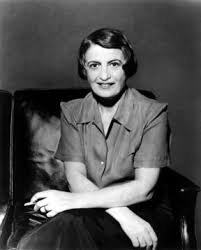
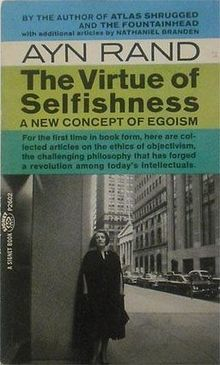
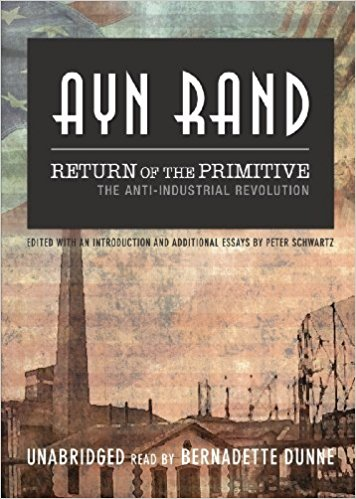
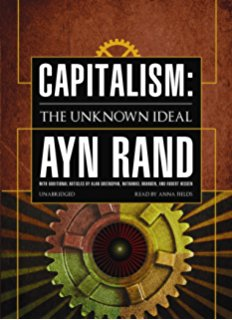
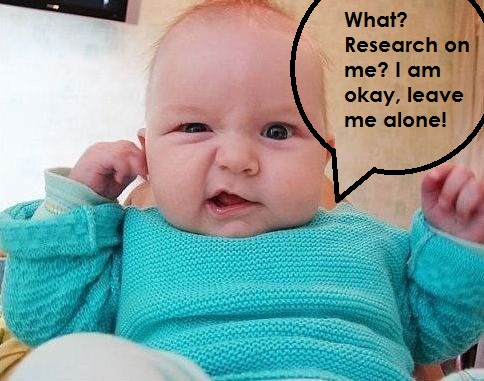
While I disagree with you on Rand, (I'm not a fan) I do like the format of this post. Next time, however, you should write considerably MORE than 250 words in response.
Hey @mountainwashere , appreciate your suggestion! Will keep it in mind next time I post something similar!
Cool! Basically, when I'm reading someone's post, that means that I'm interested in what they have to say- so I'm willing to read a good bit more than 250 words.
Agreed! :)